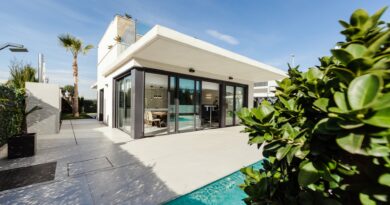Comprehensive Commercial Mold Services in Edison, NJ
In Edison, New Jersey’s dynamic commercial landscape, mold presents unique challenges that extend far beyond those faced by residential properties. From the sprawling warehouses along I-287 to the bustling retail centers near Menlo Park Mall, and from healthcare facilities near JFK Medical Center to the corporate office parks along Raritan Center Parkway, commercial properties require specialized approaches to mold detection, remediation, and prevention. Understanding the range of Commercial Mold Services in Edison NJ helps property owners and managers protect not just their physical assets but also their operations, employees, customers, and ultimately their bottom line.
Commercial Mold Dynamics: Why Edison Businesses Face Unique Challenges
Several factors create distinctive mold scenarios in Edison’s commercial settings:
Property Type-Specific Vulnerabilities
Different commercial facilities face specialized challenges:
Large-Scale Retail Environments: Edison’s significant retail sector, anchored by Menlo Park Mall and extending through corridors like Route 1 and Oak Tree Road, faces distinctive challenges including:
- HVAC systems scaled for large open spaces that can distribute mold spores throughout shopping areas if contaminated
- High-traffic entryways that introduce moisture during inclement weather
- Complex roof systems with numerous penetration points for utilities, signage, and equipment
- Food court and restaurant areas creating localized humidity zones within larger facilities
Warehouse and Industrial Properties: Edison’s position as a logistics hub creates specific warehouse challenges:
- Vast open spaces with minimal interior walls where air circulates freely, potentially distributing contaminants throughout
- Loading dock areas where frequent exterior access creates moisture intrusion pathways
- Minimal climate control in many storage areas leading to seasonal humidity fluctuations
- Concrete slab foundations susceptible to groundwater influence, particularly in properties near the Raritan River watershed
Office Environments: From corporate campuses to converted historic buildings, Edison’s office properties present distinct considerations:
- Densely occupied spaces where indoor air quality directly affects employee health and productivity
- Complex HVAC systems often balancing conflicting needs across different zones
- Dropped ceiling systems creating concealed areas where moisture problems can develop undetected
- Window systems of varying ages and technologies creating different condensation risk profiles
Healthcare Facilities: Edison’s medical facilities face particularly critical challenges:
- Stringent regulatory requirements regarding environmental contaminants
- Vulnerable patient populations with heightened sensitivity to mold exposure
- Complex plumbing systems serving specialized equipment
- Strict infection control protocols that must be maintained during any remediation
Edison-Specific Environmental Factors
Local conditions create particular commercial mold pressures:
Climate Transition Zone Impact: Edison’s location in central New Jersey creates distinct seasonal challenges, with humid summers and cold winters creating dramatic HVAC transition periods where condensation risk peaks. Commercial properties with large-scale mechanical systems face particular vulnerability during these shoulder seasons.
Industrial Proximity Effects: Many Edison commercial properties exist near industrial operations that influence ambient humidity, particulate levels, and air exchange patterns. These factors create unique microclimates around certain commercial zones that affect mold risk profiles.
Development History Patterns: Edison’s commercial development occurred in distinct phases, from older properties along Route 27 to newer development near Raritan Center. These different construction eras employed varying materials, techniques, and system designs that create property-specific mold vulnerabilities requiring tailored approaches.
Transportation Corridor Influence: Properties along major transportation routes experience distinct air quality and vibration patterns that affect building envelope integrity over time. These subtle impacts create moisture intrusion pathways requiring specialized detection approaches.
Comprehensive Commercial Assessment: Beyond Standard Inspection
Commercial mold services begin with specialized assessment approaches:
Multi-System Evaluation Protocols
Commercial assessment encompasses numerous interconnected systems:
Building Envelope Analysis: Commercial assessment begins with comprehensive evaluation of the exterior shell, including:
- Infrared scanning of wall assemblies to identify moisture intrusion points
- Roof system evaluation focusing on membrane integrity, drainage patterns, and penetration seals
- Fenestration assessment examining window and door systems for condensation risk and weather seal integrity
- Foundation evaluation particularly critical for Edison’s many commercial properties with below-grade spaces
HVAC System Assessment: Commercial mechanical systems require specialized evaluation:
- Cooling coil and condensate system inspection for biological growth
- Ductwork assessment using remote camera systems to examine internal conditions
- Filter efficiency evaluation to determine spore capture effectiveness
- Airflow balancing assessment to identify pressure differentials that might contribute to moisture problems
Plumbing System Evaluation: Commercial properties feature complex plumbing networks:
- Pipe chase inspection for concealed leaks and condensation issues
- Fixture backflow assessment in food service and industrial applications
- Domestic water system evaluation for temperature maintenance and circulation issues
- Specialized process water systems assessment in applicable facilities
Site Drainage Analysis: External water management critically affects commercial properties:
- Parking area drainage pattern assessment especially important for Edison’s many properties with extensive impervious surfaces
- Landscaping evaluation to identify plantings and irrigation affecting foundation moisture
- Stormwater system inspection to verify proper function during heavy precipitation
- Groundwater influence assessment particularly relevant for properties in low-lying areas
Advanced Technology Deployment
Commercial assessment employs specialized technologies:
Building Automation System Integration: Advanced assessments interface with existing building management systems to analyze historical temperature, humidity, and pressure data revealing conditions conducive to mold development.
Large-Scale Thermal Mapping: Commercial properties require comprehensive thermal imaging beyond residential capabilities, employing grid-pattern scanning to create complete building thermal profiles identifying subtle moisture patterns invisible to visual inspection.
Industrial Hygiene Monitoring: Professional assessment includes air quality monitoring for particulates, volatile organic compounds, carbon dioxide levels, and other parameters that provide context for potential mold issues and distinguish between mold-related and industrial air quality concerns.
Pressure Differential Analysis: Commercial buildings often develop complex air pressure relationships between zones that drive moisture movement through structures. Specialized equipment maps these pressure dynamics to identify contributing factors invisible to standard inspection approaches.
Commercial-Scale Remediation: Minimizing Business Disruption
When assessment identifies problems, commercial remediation employs specialized approaches:
Operation-Focused Containment Strategies
Commercial remediation prioritizes business continuity:
Zone Isolation Systems: Rather than treating entire facilities as single remediation zones, commercial services implement sophisticated containment strategies that isolate affected areas while allowing continued operation elsewhere:
- Modular containment systems configurable to diverse commercial spaces
- Negative air pressure maintenance preventing cross-contamination to operational zones
- Separate access protocols for remediation personnel and facility employees
- Staged implementation allowing rotating remediation of different zones while maintaining overall operations
After-Hours Implementation: Many commercial remediation protocols in Edison employ strategic scheduling:
- Overnight remediation phases for retail environments allowing normal daytime operations
- Weekend intensive approaches for office environments minimizing workday disruption
- Shift-coordinated remediation for industrial facilities operating continuous schedules
- Segmented approaches for healthcare environments maintaining critical care capabilities
Temporary Engineering Controls: Commercial remediation often employs temporary systems maintaining essential functions during remediation:
- Provisional HVAC capabilities serving critical areas during system remediation
- Temporary wall systems with appropriate fire ratings maintaining security and separation
- Interim utility provisions maintaining services to unaffected areas
- Provisional access routes maintaining egress compliance during primary path remediation
Industrial-Scale Equipment Deployment
Commercial remediation employs equipment far beyond residential capacity:
High-Volume Air Filtration: Commercial-grade HEPA filtration systems process thousands of cubic feet per minute, creating rapid air exchange even in large commercial spaces.
Desiccant Dehumidification: Industrial desiccant systems remove moisture at scales impossible with conventional refrigerant dehumidifiers, rapidly establishing appropriate conditions even in large open areas.
Thermal Remediation Systems: Commercial services employ specialized heating systems that elevate temperatures in building materials to levels eliminating mold viability without damage to the materials themselves.
Dry Ice Blasting Technology: Advanced surface cleaning using compressed CO₂ pellets removes mold without water or chemical residue, particularly valuable for sensitive equipment areas, food processing environments, and electronics facilities.
Preventative Services: Beyond Remediation
Comprehensive commercial services extend beyond addressing existing problems:
Customized Prevention Programs
Commercial services develop facility-specific prevention strategies:
Building Performance Optimization: Rather than generic recommendations, commercial services analyze specific building dynamics to optimize systems for mold prevention:
- HVAC rebalancing to eliminate microclimates conducive to mold development
- Building envelope improvement strategies addressing property-specific vulnerabilities
- Site drainage modification targeting unique property water management challenges
- Material replacement recommendations specifying mold-resistant alternatives for problem areas
Environmental Monitoring Systems: Commercial prevention includes ongoing condition tracking:
- Remote sensor networks monitoring temperature, humidity, and moisture content in vulnerable areas
- Data logging systems creating historical performance records identifying subtle changes before problems develop
- Alert protocols notifying facility management when conditions exceed specified parameters
- Trend analysis identifying seasonal patterns requiring preventative intervention
Staff Training Programs: Comprehensive services include education for facility personnel:
- Maintenance staff training on early warning sign identification
- Housekeeping protocol development for moisture management
- Facility manager education on system optimization for mold prevention
- Tenant communication strategies for multi-tenant commercial properties
Regulatory Compliance Support
Commercial services help navigate complex compliance requirements:
OSHA Compliance Documentation: Services include workplace safety documentation addressing:
- Indoor air quality standards under OSHA regulations
- Employee exposure documentation requirements
- Remediation protocol compliance with workplace safety standards
- Record-keeping requirements for environmental testing and remediation
Insurance Requirement Fulfillment: Commercial services provide documentation satisfying:
- Property insurance inspection and maintenance requirements
- Claim documentation for covered mold events
- Loss prevention certification for premium management
- Historical record maintenance for coverage continuation
Industry-Specific Compliance: Specialized protocols address unique requirements for:
- Healthcare facility infection control standards
- Food service establishment sanitation requirements
- Pharmaceutical and clean manufacturing specifications
- Educational facility environmental standards
Selecting Commercial Mold Services in Edison
Several factors distinguish truly qualified commercial providers:
Essential Qualification Factors
Look for providers demonstrating:
Commercial-Specific Experience: Verify providers have extensive experience with your specific property type in Edison, as techniques effective in office environments may prove inadequate for industrial or healthcare facilities.
Scale-Appropriate Resources: Ensure providers maintain equipment inventory, staffing, and financial capacity to handle projects at your facility’s scale without overextension.
Multi-Disciplinary Expertise: Quality commercial services integrate knowledge spanning:
- Building science and envelope specialists
- Mechanical systems engineers
- Industrial hygienists
- Microbiologists
- Construction professionals
Business Operation Understanding: Effective commercial providers demonstrate understanding of your specific business operations, prioritizing approaches that maintain critical functions while addressing environmental concerns.
Verification Approaches
Before engagement, consider:
Project Portfolio Review: Examine documentation of previous projects similar to your facility, particularly noting business continuity strategies employed during remediation.
Insurance and Bonding Verification: Confirm providers maintain appropriate commercial liability coverage, pollution insurance, and bonding capacity scaled to your facility’s value.
Regulatory Compliance History: Verify providers maintain clean records with relevant regulatory bodies including OSHA, EPA, and New Jersey Department of Environmental Protection.
Client Reference Consultation: Speak directly with previous clients operating similar facilities about both technical performance and business operation accommodation during projects.
Commercial Property Type-Specific Considerations in Edison
Different commercial sectors require specialized approaches:
Retail Environment Focus
Edison’s significant retail sector requires specific considerations:
Customer Experience Preservation: Effective retail remediation employs strategies maintaining positive shopping environments during projects, including:
- Aesthetic containment approaches that don’t create alarming or unattractive barriers
- Odor control protocols preventing remediation-related smells from affecting shopping areas
- Noise management systems limiting disruption during business hours
- Phased implementation maintaining full merchandise access throughout remediation
Multi-Tenant Coordination: Many Edison retail environments involve multiple businesses under single roofs, requiring:
- Clear communication protocols with all affected tenants
- Scheduling coordination accommodating different business operation patterns
- Equitable distribution of remediation impacts across tenant spaces
- Appropriate liability and responsibility documentation between property owners and tenants
Office Environment Specialization
Edison’s office properties present distinctive requirements:
Productivity Maintenance Focus: Office remediation emphasizes approaches minimizing workspace disruption:
- Weekend-focused implementation schedules
- Mobile workstation provisions for temporarily displaced employees
- Technology infrastructure protection during remediation
- Phased approaches allowing department rotation rather than complete displacement
Occupant Communication Strategies: Office environments require transparent communication:
- Employee notification protocols regarding remediation activities
- Health concern addressing strategies for sensitive individuals
- Project timeline communications maintaining workforce confidence
- Post-remediation verification sharing confirming successful completion
Industrial and Warehouse Applications
Edison’s logistics sector needs specialized approaches:
Inventory Protection Protocols: Warehouse remediation requires strategies safeguarding stored goods:
- Product isolation systems preventing contamination exposure
- Temperature and humidity maintenance for sensitive inventory
- Security maintenance throughout remediation processes
- Material handling accommodation during containment construction
Operations Scheduling Integration: Industrial remediation coordinates with production requirements:
- Shift-coordinated implementation minimizing production impacts
- Process-specific containment designed around material handling needs
- Equipment protection protocols during adjacent remediation
- Staged approaches aligned with production scheduling
Healthcare Facility Specialization
Edison’s medical facilities demand particularly specialized services:
Infection Control Integration: Healthcare remediation incorporates:
- ICRA (Infection Control Risk Assessment) compliance at all project phases
- Negative air pressurization exceeding standard remediation requirements
- HEPA filtration with higher efficiency ratings than typical commercial applications
- Enhanced containment verification protocols
Patient Safety Prioritization: Healthcare projects implement:
- Vulnerable population protection strategies
- Medical equipment protection protocols
- Alternative care area provisions during remediation
- Accelerated implementation timelines for critical care zones
Conclusion: Comprehensive Protection for Edison’s Commercial Sector
For Edison’s diverse commercial property owners and managers, comprehensive mold services provide protection extending far beyond basic remediation. By employing sophisticated assessment technologies, implementing business-conscious remediation strategies, and developing facility-specific prevention programs, these specialized services safeguard not just physical assets but the operations they house.
In Edison’s competitive commercial landscape, where property functionality directly impacts business success, the value of truly comprehensive mold services extends throughout the operational chain—from employee productivity and customer experience to regulatory compliance and insurance relationship management. By understanding the specialized approaches available and the factors distinguishing truly qualified providers, Edison’s commercial stakeholders can make informed decisions that protect their investments while maintaining the operational integrity essential to business success.
Whether managing a retail center along Route 1, an office complex near Metropark, a warehouse in Raritan Center, or a healthcare facility near JFK Medical Center, choosing the right commercial mold services provides both immediate problem resolution and long-term facility protection—delivering value that extends far beyond the direct remediation investment to encompass the entire business operation these properties support.
For more information about Commercial Mold Services in Edison New Jersey please contact:
Business Name: Green Guard Mold Remediation of Edison
Address: 6 Kilmer Rd, Edison, NJ 08817, United States
Phone Number: 908-762-8046
Website: https://www.greenguardmoldremediationedison.com/
Google Map: https://maps.app.goo.gl/nbfnjCYWhWWbWUDA9




